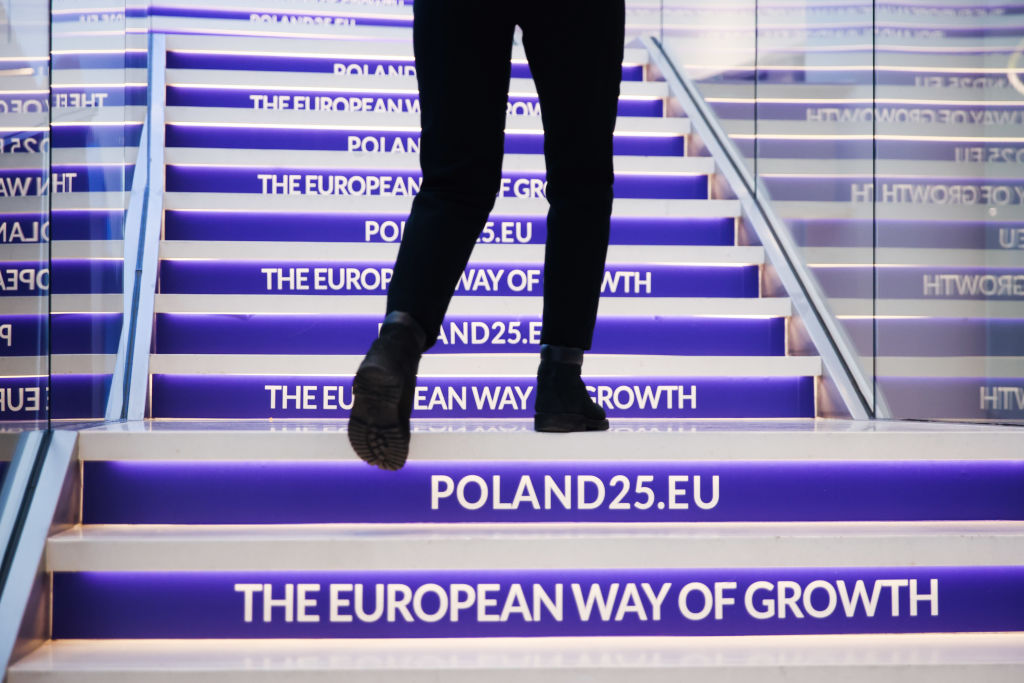Poland’s EU presidency was marked by a series of pivotal healthcare initiatives, underscoring Warsaw’s ambition to shape the bloc’s public health agenda. The culmination of these efforts was highlighted at a high-level meeting convened by the Ministry of Health on 3 July.
Over the six-month term, Polish authorities advanced legislative and strategic priorities centred on four key areas: safeguarding youth mental health in the digital age, bolstering cancer prevention, accelerating the digital transformation of healthcare systems, and reinforcing pharmaceutical security across member states.
The event served as both a retrospective on Poland’s presidency and a platform to consolidate support for ongoing reforms aimed at enhancing resilience and equity in European healthcare.
“The presidency is not only about prestige and great responsibility. It is, above all, an opportunity to bring truly important issues to the European agenda. Health is one of them. This was our time, and our shared success,” Izabela Leszczyna, Health Minister, said during her opening remarks.
Health promotion, disease prevention
The first priority was the promotion of health and disease prevention.
During the Polish presidency, prevention was presented as an investment in longer, healthier lives for citizens and greater resilience of health systems. There was a strong emphasis on equalising access to preventive care, regardless of a patient’s place of residence.
“Using the presidency as a moment to build lasting structures of cooperation, initiate dialogue between states, and promote prevention as the foundation of European health policy is a lasting contribution of Poland to the development of the EU’s common health policy,” stated the National Oncology Institute, which collaborated with the Ministry of Health.
According to the Institute, Poland strengthened its position as an initiator and leader in cancer prevention efforts.
Youth mental health
A second flagship was the focus on the mental health of children and young people.
During the Polish presidency, the EPSCO Council unanimously adopted conclusions on 20 June 2025 regarding the promotion and protection of youth mental health in the digital age.
The document was shaped through dialogue and by listening to the voices of students from Gdynia’s III High School. “Young people know best what they are facing. Their experiences and voices were crucial,” said Katarzyna Kacperczyk, Deputy Minister of Health.
While the document contains recommendations to support the mental health of young people, Minister Leszczyna emphasised, “This is not just a set of shared conclusions. It is a signal that member state representatives recognise the need for action here and now.”
The adopted conclusions call on EU countries to take concrete steps to effectively protect young people and to treat them as equal partners in developing national strategies.
“It is also an encouragement for the European Commission to act in this area. It is time for common standards that will help us better meet challenges and navigate the digital reality,” Leszczyna said.
Pharmaceutical security
During the Polish presidency, the European Commission presented the draft Critical Medicines Act, a new EU law designed to strengthen pharmaceutical security and support the production of essential medicines and active pharmaceutical ingredients (APIs) within the Union.
Another breakthrough was the adoption of a common position on the revision of the pharmaceutical package, giving the Council a mandate for further negotiations with the European Parliament and the Commission.
“We have concluded a negotiation that lasted almost two years. We have reached a consensus, which very many said was actually almost impossible,” Minister Leszczyna told assembled media following the Council’s agreement on the new pharmaceutical package.
The government’s efforts were supported by the Polish Association of Pharmaceutical Employers (PZPPF). According to the association, the compromise will shorten drug monopolies and accelerate competition, leading to savings for the National Health Fund and broader therapy availability, enabling generic drug manufacturers faster market access.
“Exclusivity periods are the longest in the world in the EU,” Krzysztof Kopeć, President of the PZPPF, told Euractiv.
He believes shortening market exclusivity by a year will result in significant savings for health systems, as drug prices can drop by up to 80% when competition emerges.
However, Michał Byliniak, Director General of INFARMA, told Euractiv that reducing intellectual property protection for innovative pharmaceutical companies could make Europe less attractive for investment and threaten the development of innovative therapies unless fundamental barriers and delays in patient access are addressed.
Digital transformation of healthcare
Poland also positioned itself as a leader in the digital transformation of healthcare, promoting the development of common standards for medical data exchange and the implementation of the European Health Data Space (EHDS).
Throughout numerous meetings and conferences, the European Commission and member states reaffirmed their commitment and readiness for further cooperation in this area.
The Ministry of Health also highlighted that the Polish presidency set the direction for discussions on the digital security of healthcare systems, initiating talks on the European Commission’s action plan to protect hospitals and medical facilities from cyber threats.
Attention was also drawn to the need to strengthen the cybersecurity of medical devices, emphasising that technological progress must go hand in hand with responsibility and the protection of patient data.
According to the Ministry of Health, Poland is well-prepared to implement the EHDS system, but new institutions and data security measures are still necessary. “Health data, to be safe, must remain in the hands of the state,” Leszczyna emphasised.
[Edited by Vasiliki Angouridi, Brian Maguire]
